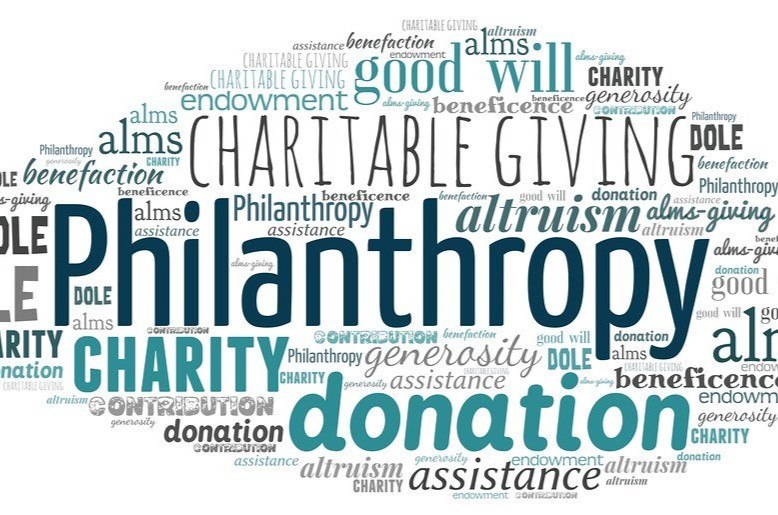Mumbai, July 20, 2024: Indian ultra high net-worth individuals (UHNIs) can potentially triple philanthropic contributions to Rs 75,500 crore annually, according to a new study that help shed light on how to unlock significant additional philanthropic capital to aid India’s transformation.
The study titled “Wealth with Purpose: A Report on Private Indian Philanthropy” also states that philanthropy in India is shifting from traditional giving to strategic and impactful engagement, led by young first-generation wealth creators who focus on long-term solutions and experimental models for scalable impact.
The study was conducted by Accelerate Indian Philanthropy (AIP) – a not-for-profit organization that works to promote and catalyze personal Philanthropy in India, in partnership with Boston Consulting Group (BCG).
Over 100 ultra high net-worth individuals (UHNIs) were contacted in this extensive study to explore their motivations, challenges, strategies, and decision-making processes across various stages of giving. These UHNIs represented wealth segments from 200 to 2000+ crores.
The report celebrates Indian philanthropists' impact while advocating for increased and more strategic giving. It recommends deeper engagement with causes, systematic approaches, and key strategies like institution-building, innovation, government collaboration, long-term planning, grassroots capacity building, and knowledge-sharing to enhance philanthropic effectiveness in India.
Drawing on views from a wide range of sources, including industry leaders, philanthropists, and social impact specialists, the report offers a detailed analysis of India's philanthropic ecosystem. With in-depth research and actual case studies, the report gives Indian wealth creators a road map for maximizing their philanthropic influence and promoting social change.
According to the report, 90% of respondents expressed a desire to increase their philanthropic contributions, with UHNIs potentially contributing Rs 75,000+ crore annually by allocating just 5% of their incremental wealth compared to the current contribution of potentially over 3-fold of current giving in India.
The study said collaboration is identified as a key factor in amplifying philanthropic impact, with knowledge sharing and joint efforts strengthening the overall ecosystem and enhancing the scale of Impact.
The study identifies six distinct philanthropic archetypes in India - Inspiration Seekers, Cause Champions, Emerging Givers, Core Givers, Strategic Enablers, and Rainmakers across varies stages of their philanthropic journeys and giving.
Ashish Dhawan, Founder-CEO, The Convergence Foundation and AIP Core Founder, said, “Personal wealth accumulation in India is surpassing global averages and there is an opportunity for philanthropy to play a much bigger role but currently it lags behind global giving averages. Philanthropy can play a catalytic role in driving India’s economic and social transformation, and our vision, through AIP, is to collectively accelerate philanthropy towards that end. We advocate for philanthropy to create systemic impact by way of addressing the country’s growth and developmental challenges at a population-level and in a sustainable manner.”
According to the study, key trends emerging in philanthropic sector are early engagement, increasing importance of scale, early philanthropic engagement by the new generation, support for multiple causes, and a preference for direct grant-making among evolved philanthropists.
“This report highlights a crucial positive trend in India -the rise of a robust philanthropic culture. Realizing the dream of 'Viksit Bharat’ requires collective commitment. We now have an evolved set of philanthropists who are not only giving but also getting involved with their time and ties, engaging in bold experimentation, and tackling large-scale issues. At the same time, we have an emerging new generation that not only believes in early engagement but also prioritizes long-term solutions over short-term charitable work. The report highlights six such archetypes of philanthropists each with different motivations, but each equally critical to bringing us closer to our aspirations. I hope it inspires transformative contributions,” said Neeraj Aggarwal, Chair, Asia-Pacific, Boston Consulting Group.
The report highlights on the TIE Model of Philanthropy. The model categorizes philanthropic contributions into three areas: Treasure (financial resources), Involvement (time, talent, ties), and Evangelization (advocacy and influence), highlighting the importance of holistic engagement for significant and sustainable impact.
“India's UHNIs are uniquely positioned to drive the country’s social and economic transformation through their philanthropic efforts. This report serves as a guide for UHNIs to understand the evolving landscape of philanthropy, recognize their potential impact, and adopt strategies that can contribute to India’s transformation. The report makes a case for not only increased philanthropic giving, but also for more personal involvement and the evangelization for the cause of philanthropy. In collaboration with BCG, AIP shows how philanthropy in India is evolving and provides a roadmap for strategic giving,” said Amitabh Jaipuria, CEO, Accelerate Indian Philanthropy.




















.jpg)



